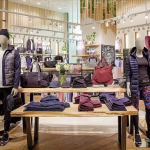Outdoor Industry Association (OIA), in a letter to President Trump, is warning the administration that the ongoing trade war and higher tariffs will devastate one of the nation’s strongest industries, which is a major contributor to the growing $887 billion outdoor recreation economy and makes up over 2 percent of U.S. GDP.
The letter cites that raising the additional tariffs on the “List 3” products of everyday outdoor goods like “backpacks, sports bags, ski gloves, kayaks, bikes, camp chairs and camp stoves – from 10 to 25 percent and an additional 25 percent tariff on all remaining products imported from China – including apparel and footwear – will further raise costs for outdoor manufacturers, suppliers and retailers and cut into already thin profit margins.”
The letter goes on to state that these increased tariffs will mean less money for new American jobs and will hamper the design and development of innovative new products. It also could force small and medium-sized businesses to close, further impacting one of strongest, sustainable industries in the nation.
OIA offered to work with the president and his administration on solutions that would support American businesses and consumers stating, “We stand ready to work with you on passage of the United States-Mexico-Canada Agreement (USMCA) and additional bilateral agreements that will provide significant benefits to outdoor companies and consumers.”
Read the full letter below.
Dear Mr. President:
On behalf of the outdoor recreation industry, we write to express our concern with the increase of existing punitive tariffs from 10 to 25 percent on certain products sourced from China and the proposal to establish such tariffs on all other imports from China, including key products for the outdoor recreation economy. We urge you to consider the negative economic impact these tariffs are having on American consumers and businesses, and request that you finalize trade negotiations with China and lift all existing 301 tariffs.
We appreciate the administration’s commitment to negotiate an agreement with China that will address long-standing concerns about China’s industrial policies and protect U.S. intellectual property (IP). We have been encouraged by progress made in those talks and believe there is real value to our industry in a successful conclusion on those objectives.
However, we are concerned that tariffs affecting our industry continue to be utilized as an enforcement tool during these important discussions. In the months since these punitive tariffs came into effect for most outdoor products last September, they have severely inhibited the ability of outdoor companies to grow their businesses. Additional tariffs, particularly on apparel and footwear, will deliver a devastating blow to the $887 billion outdoor recreation economy and the 7.6 million American jobs it supports.
Outdoor companies produce some of the most innovative products that reach all corners of the globe, enriching people’s lives by supporting healthy and active lifestyles. There is no viable domestic production of these products and none of them are included as a part of China’s “Made in China 2025” program. Despite the lack of domestic production, many of the products on “List 3” and those that would be included on a “List 4” already face significant import tariffs, as high as 37.5 percent for hiking boots, 32 percent for a polar fleece jacket, 27.7 percent for ski jackets, 20 percent for sports bags and 17.6 percent for backpacks. Overall, outdoor companies already pay approximately $750 million in import tariffs annually.
Raising the additional tariff on the “List 3” products – that includes backpacks, sports bags, ski gloves, kayaks, bikes, camp chairs and camp stoves – from 10 to 25 percent and an additional 25 percent tariff on all remaining products imported from China – including apparel and footwear – will further raise costs for outdoor manufacturers, suppliers and retailers and cut into already thin profit margins.
This means less money for new domestic jobs and the design and development of innovative new products. It may also force small and medium-sized businesses to shut their doors. Additionally, outdoor products removed from previous lists following public comments and a hearing, such as bicycle and snow helmets, have re-appeared on the proposed List 4.
While outdoor companies are actively looking to diversify their sourcing options out of China, in several cases, China continues to dominate the market, with the infrastructure and skilled workforce outdoor products require. Other countries that are viable sourcing options may already be at capacity and unable to accommodate a massive, immediate shift of supply chains out of China. It will take additional time, significant investment and training to shift supply chains to other countries. Our companies are prepared to do just that but additional tariffs at this time could negatively impact their ability to remain competitive and make the necessary investments to do so.
The 301 tariffs are not just impacting products manufactured overseas, they also include inputs for final products made domestically. These tariffs negatively impact outdoor companies that produce Made in the USA goods and create the incentive to shift production overseas in order to remain competitive with foreign competition.
We look forward to a successful conclusion of the negotiations with China and the immediate removal of the punitive tariffs that affect America’s Main Street businesses. We stand ready to work with you on passage of the United States-Mexico-Canada Agreement (USMCA) and additional bilateral agreements that will provide significant benefits to outdoor companies and consumers.
Sincerely,
Amy Roberts
Executive Director
Outdoor Industry Association
cc: The Honorable Larry Kudlow, Director of the National Economic Council
The Honorable Robert Lighthizer, United States Trade Representative
The Honorable Steven Mnuchin, Secretary of the Treasury
The Honorable Wilbur Ross, Secretary of Commerce













